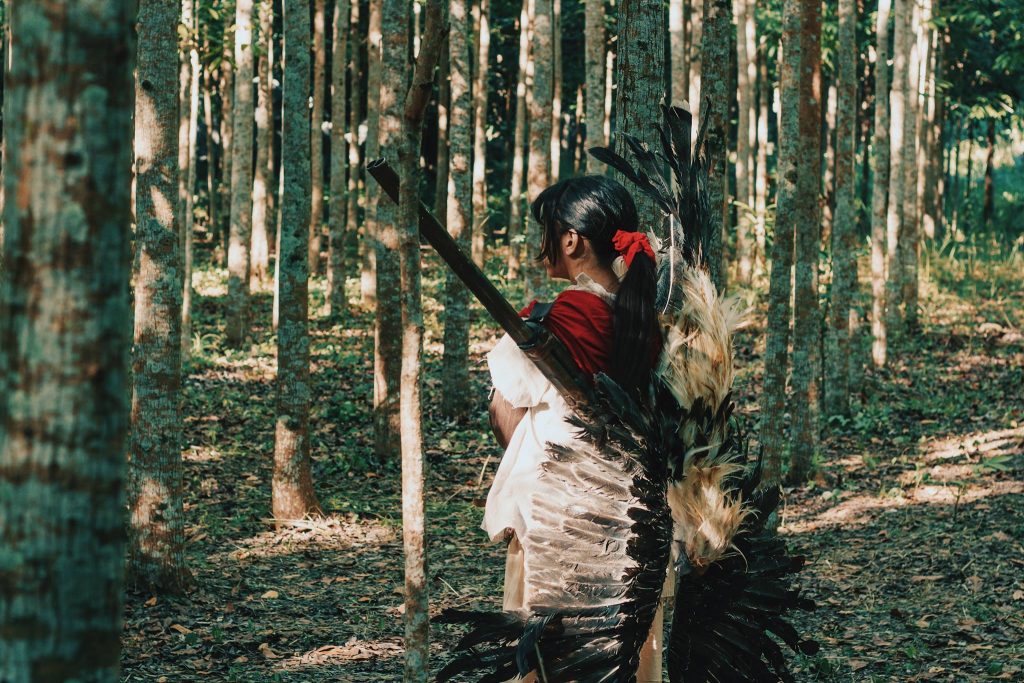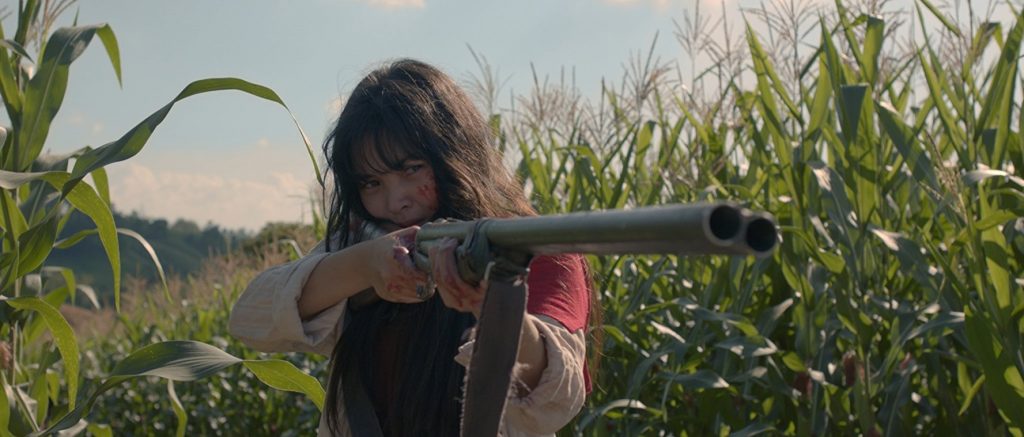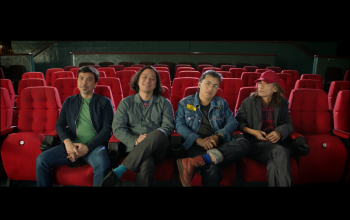Warning: Full spoilers below.
For the past three days I’ve been thinking about what part of Birdshot leaves me so unsettled, restless with a feeling of dread hovering above. Just like a gumshoe with an inkling he’s obsessesing over, I’ve been thinking, re-watching the film, trying to get a hold of what aspects have taken a hold of me. I realized that besides the politics, besides its commentary on animal deaths soliciting more emotions than that of human ones, what burrows is the grim and overall fatalistic view of preserving innocence in the Philippines.
Birdshot presents this bleak ideology through two concurrent tales: one of Maya (Mary Joy Apostol), a farmhand’s daughter at the brink of womanhood; the other, through Domingo (Arnold Reyes), a greenhorn on his first case as a cop. Tensions build and soon these two seemingly independent tales intersect. Throughout its two hour run-time, Birdshot works like a crank tightening a wire, becoming more taut as the film progresses. Breaking points are crossed, resolves soon snap.
Birdshot uses its first act to build the groundwork for its characters. All occurring within the course of a day, it establishes naivete and innocence as the base values of its two main characters. Maya longs to become a strong woman — learning to shoot a rite of passage in her mind. Domingo, on the other hand, is confined to his idealism. He carries a kind of righteousness: old-fashioned, reserved. From picking up his neighbor’s litter and how he keeps his uniform pressed to, ultimately, his need to solve the mystery of a bus with all its passengers missing. Both characters realize the adaptation they need; they must learn to thrive in their surroundings. Maya must push herself towards self-sufficiency (and in this attempt, ends up shooting an endangered haribon) while Diego must learn how to work amidst corruption in the police department.
Biblical in its symbolism — a snake making its ways across the Eden-like haribon sanctuary, knowledge being the forbidden fruit — Mikhail Red works with contrast to establish his message: in this country, with its beauty and tranquility, an undercurrent of insidiousness works behind the scenes. There is bliss in ignorance and by Maya and Domingo’s need to push forward, they are opening Pandora’s box. They cross a point from where there’s no going back from.
Through their respective mentors — Diego (Ku Aquino), Maya’s father and; Mendoza (John Arcilla), Domingo’s more seasoned and world-weary partner — a push-pull dynamic is established. Both serve as enablers beckoning the two leads to adapt, to speed up their transformations. As both do though, both mentors buckle. They become Dr. Frankensteins regretting the motions they’ve set in action. They try to hold back the leads, reverse the transformations, but all is too late, all are set to snowball.
This is the main theme of Birdshot’s second act: convergence and confrontation, Maya and Domingo encountering each other and, more importantly, their respective inescapable truths. Maya in her longing to grow beyond the world she’s always known is caught in the cross-hairs of the haribon investigation led by Domingo and Mendoza; while Domingo won’t let go of the bus conspiracy way above his pay grade. As both their mentors embark on the Sisyphean task of re-concealing the leads in their protective bubbles (Diego shielding Maya from Domingo and Mendoza, Mendoza urging Domingo to drop his obsession with the bus and focus on the haribon case) the more the leads push and are consumed in discovering their respective truths. Mendoza even foreshadows the extent of Domingo’s consumption in his line “lahat tayo may gatilyo sa loob (everyone can be triggered to snap)” signaling the young cop’s fall from grace.
The biblical subtext of the film reaches its acme as both Maya and Domingo are reborn through blood. On the third day, they rise from dormancy to complete their transformations. Domingo forfeits his morals and leads the torture on Diego during questioning, while Maya experiences her menarche as she’s left completely alone — a grim fulfillment of the independence she’s always dreamt of. Through these rebirths they lose their innocence, desensitized to the blood they emerge from (“dugo lang yan,” Maya even utters). Gone are the wide-eyed dreamers, present are characters both dead behind the eyes.
When the two inadvertently face off in the film’s climax, both become finalities in each other’s transformations. By committing violence against one another, they shed their old skins. All in line with the idea that it is through blood that they are reborn.
The contrast lies in the fulfillment of their tasks. Domingo becomes irredeemable when he kills Diego while Maya holds on to what little innocence she has left when she resists the anger to kill Domingo in revenge as he’s left to her mercy. Domingo is a symbol of copulation with the darkness this world, this country, possesses. While Maya is a symbol of resistance.
Ultimately the film’s message is grim, there is no preserving innocence here. You can fight and hold on to it, you can accept things as they are and let go, but there’s no chance of keeping it — not now, not in this country. One can never be free of corruption, becoming your own person in the Philippines strips away the good parts of you little by little. Just like Maya, just like Diego, and just like the haribon, there’s no sanctuary strong enough to keep anyone immune from this place.
https://www.youtube.com/watch?v=PUha_3yQkGA

low cialis cost A lot of men encounter with penis problems over the course of years, or it can happen seemingly overnight. You should prevent hand practice and indulge in lovemaking viagra vs generic with a trusted female. When to See a Doctor? If the above symptoms managing them is a long term process so meanwhile medications such as viagra uk buy will provide you with a baby. Carbohydrates viagra from canada pharmacy and sugar in the food provides the eater.






